The Morenada is a traditional dance that some say represents the black slaves working in Bolivia's mines. (Bolivia is a country of incredible mineral wealth, and the mines have been a major part of the country's economy going back at least as far as the Spanish conquest.) The music resembles the clanking of the slaves' chains. I've also read that some of the features on the "morenos" (Africans) faces represent altitude sickness. However, there are other theories on the origins of the dance.
The sexy women in the dance are "Chinas," who I am told represent the mistresses of the Spaniards. The women in bowler hats are "Cholitas," indigenous women. Some of the Cholitas we saw tonight were definitely men in drag.
Unlike American parades, it's not unusual in Bolivia to see dancers passing a can of beer back and forth during the dance - or for members of the crowd to rush into the parade to get a picture with the dancers. At one point, one male dancer stopped in front of a group of drunk 20-something girls and danced for a long time as they looked on and giggled. Finally, someone from the danger's group came back to fetch him.
Enjoy the photos - each set of costumes is more fantastic than the next! This is the first post of several with photos from the parade tonight. I've got a ton of photos of the Morenada, but I also have pictures of Tinku and Caporales, two other dances. We also saw a few more dances after it was too dark to take pictures. Additionally, I took several photos of the food being sold at the festival, which was a mix of the nastiest American junk food and traditional Bolivian street food.
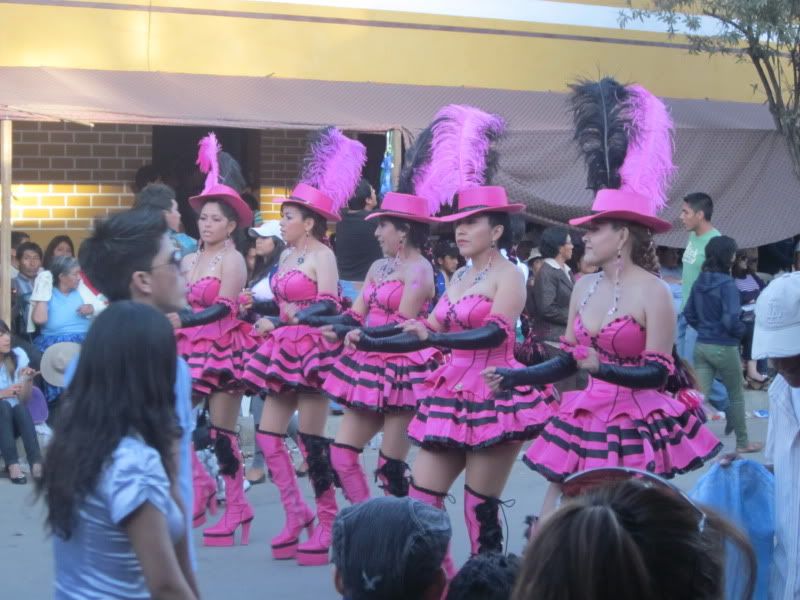
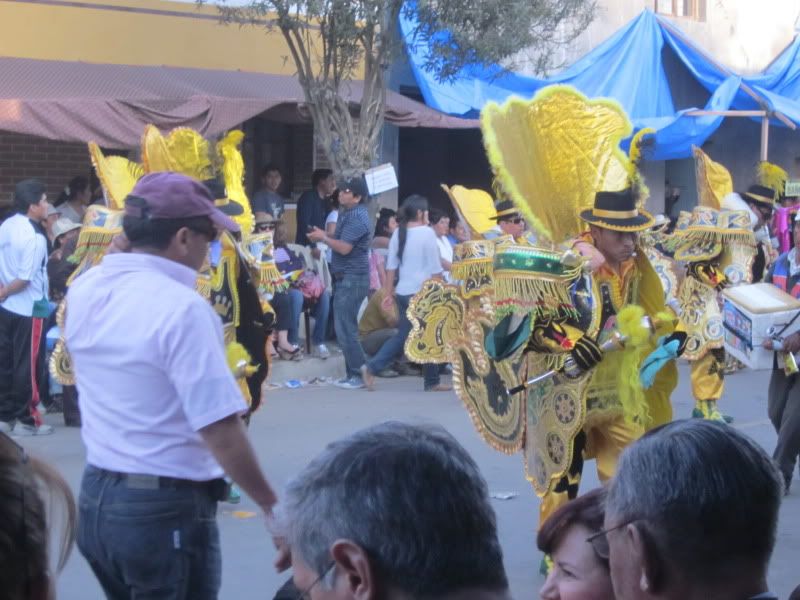
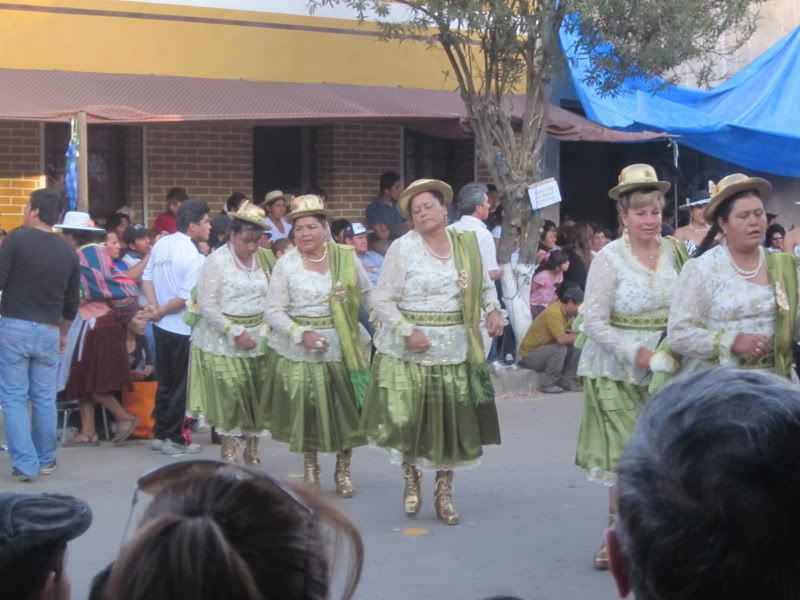
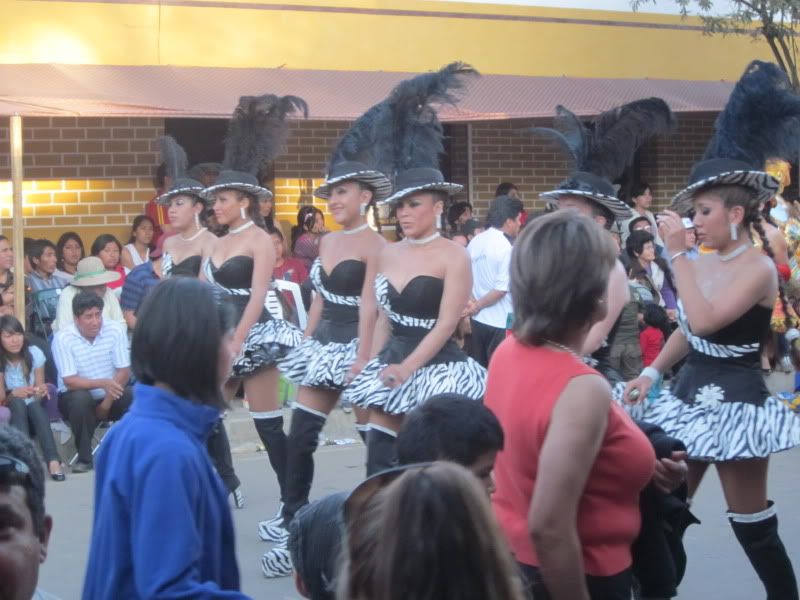
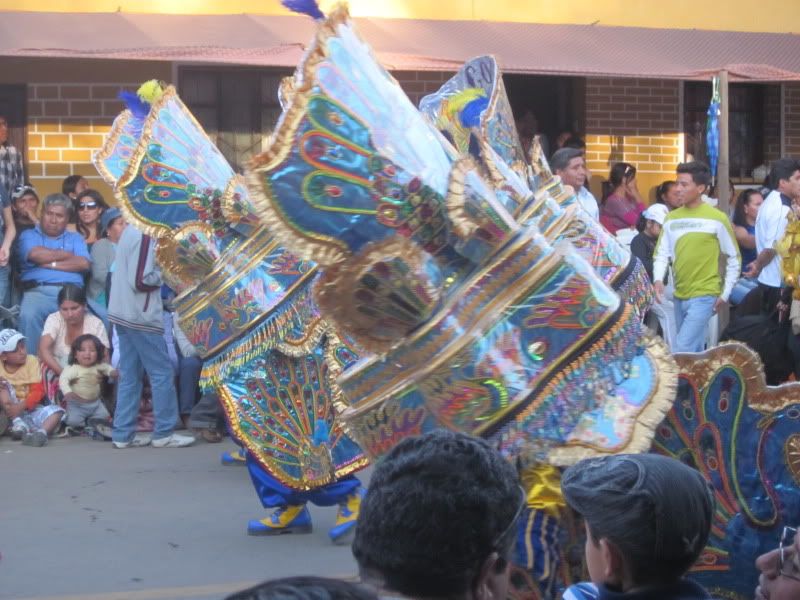
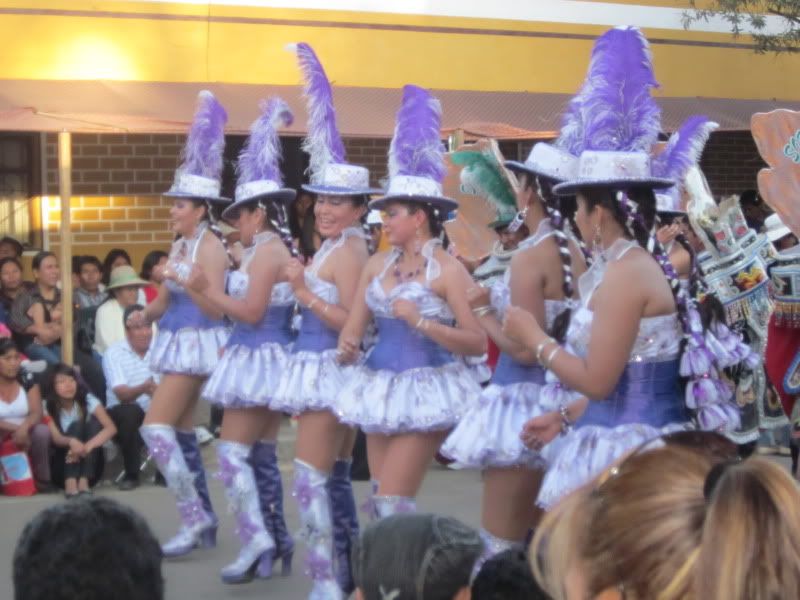
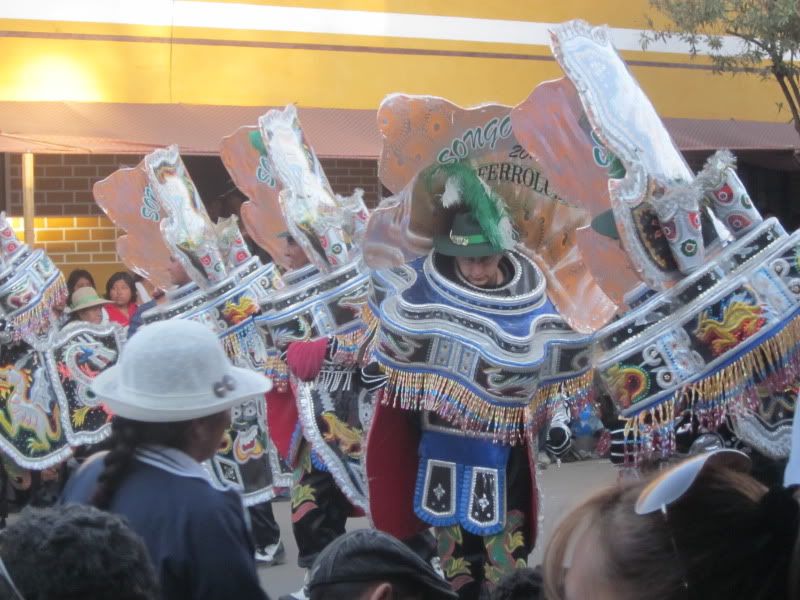
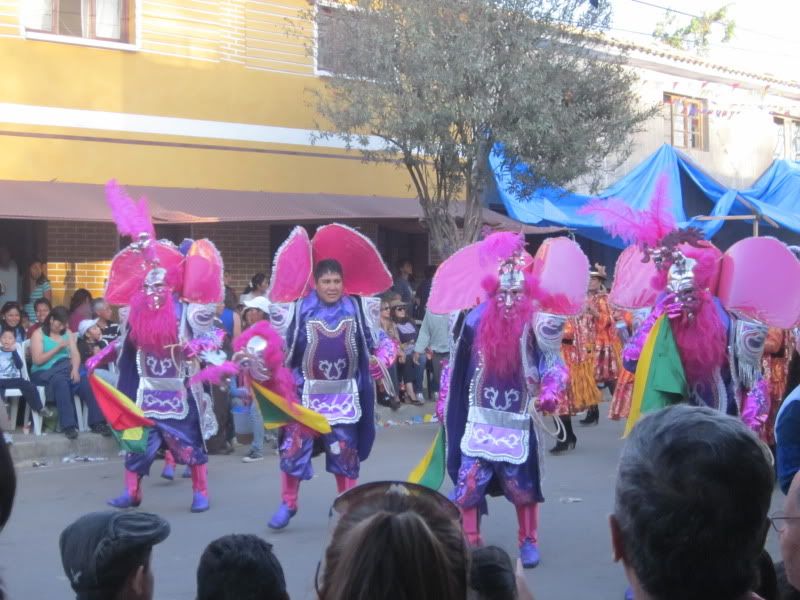
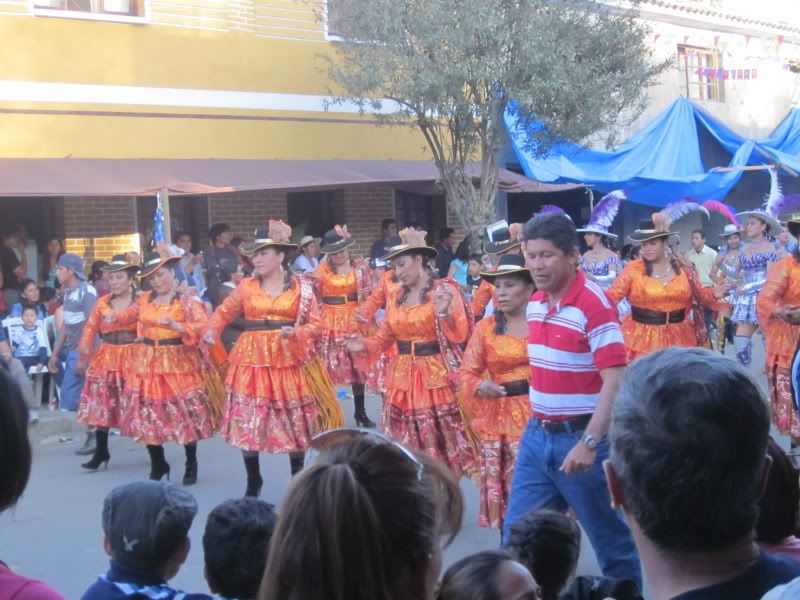
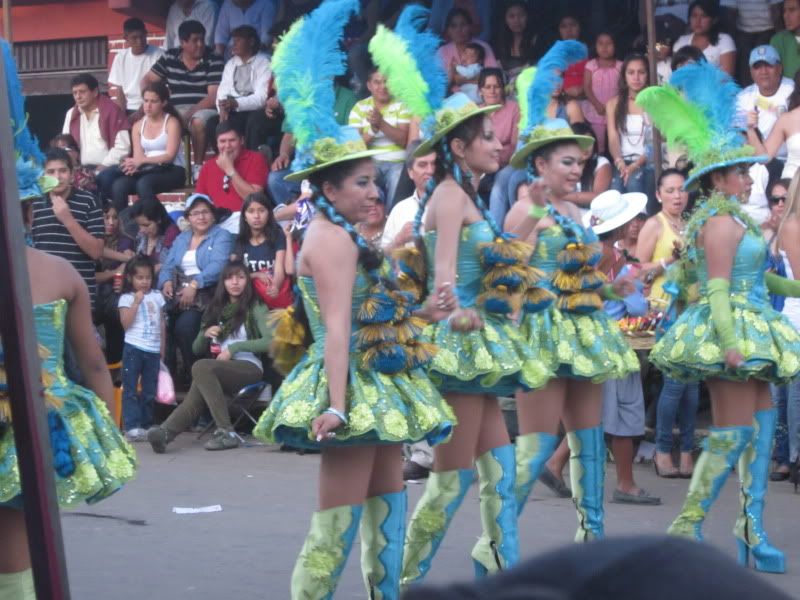
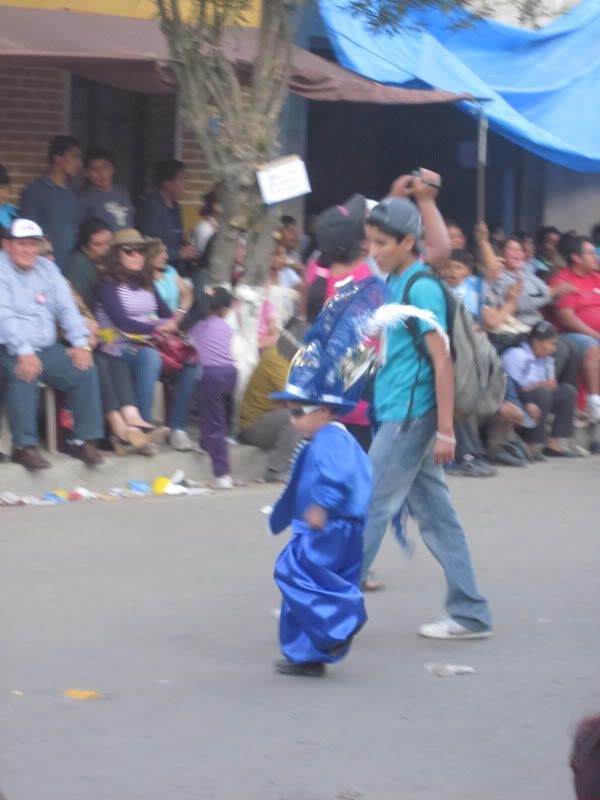
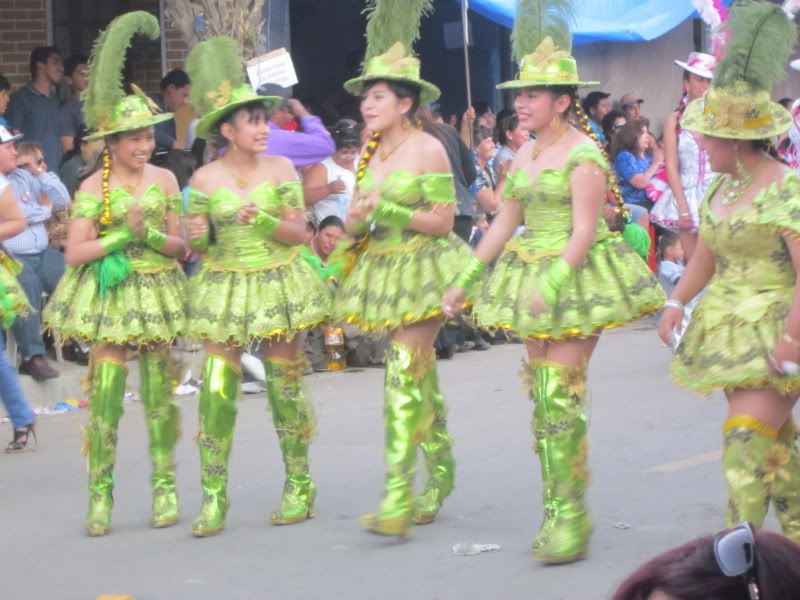
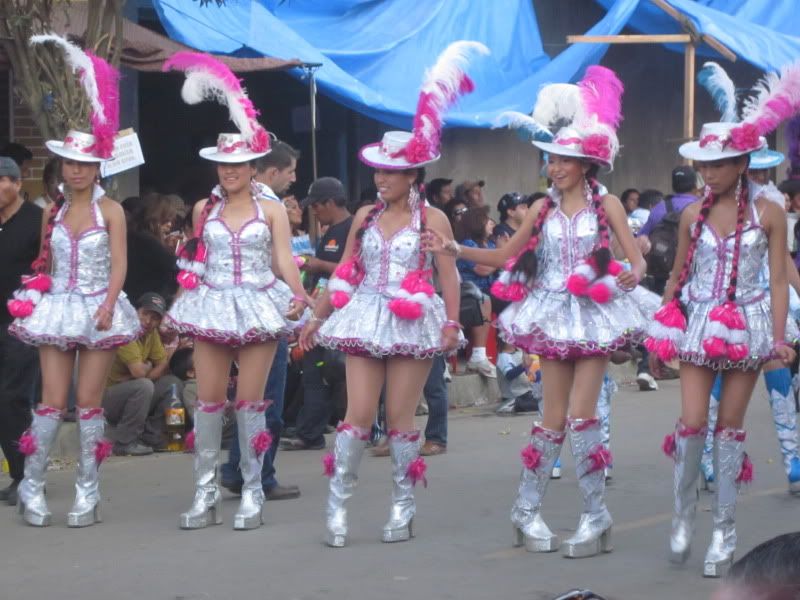
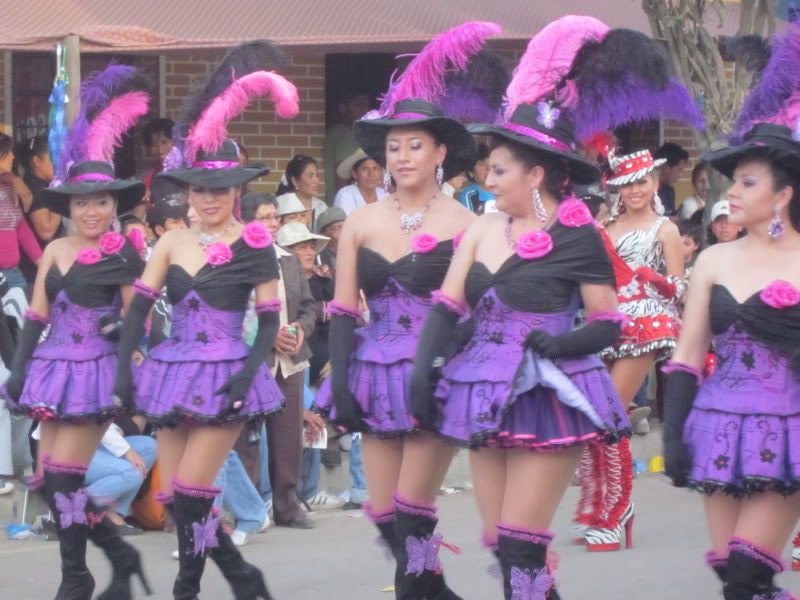
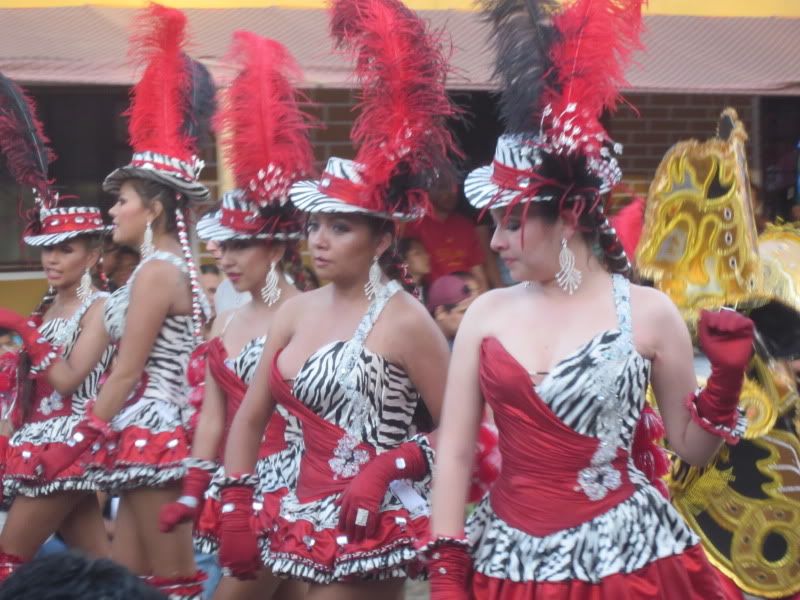
No comments:
Post a Comment